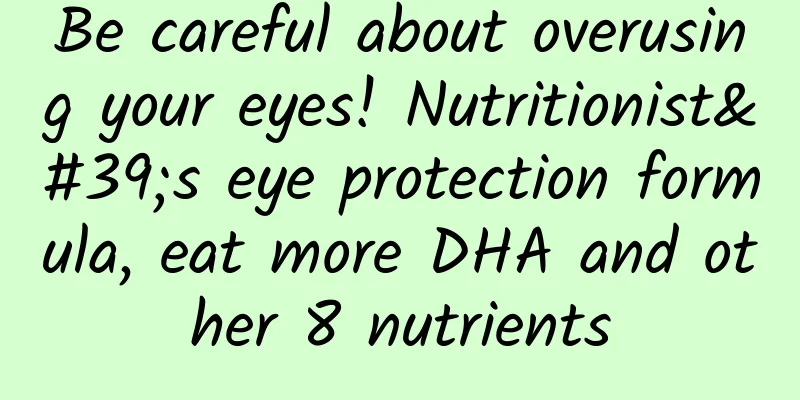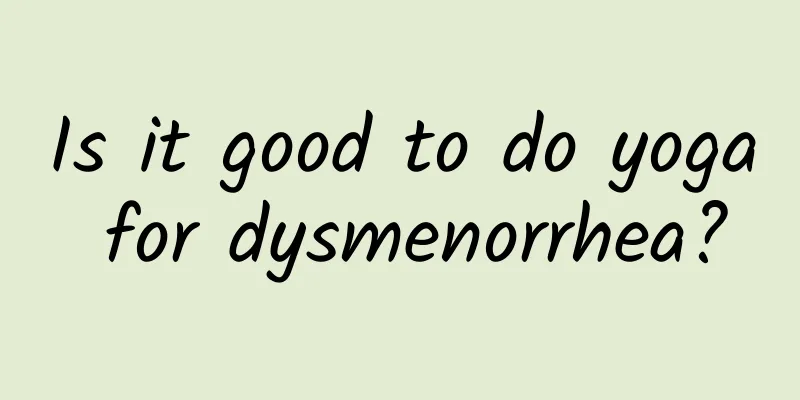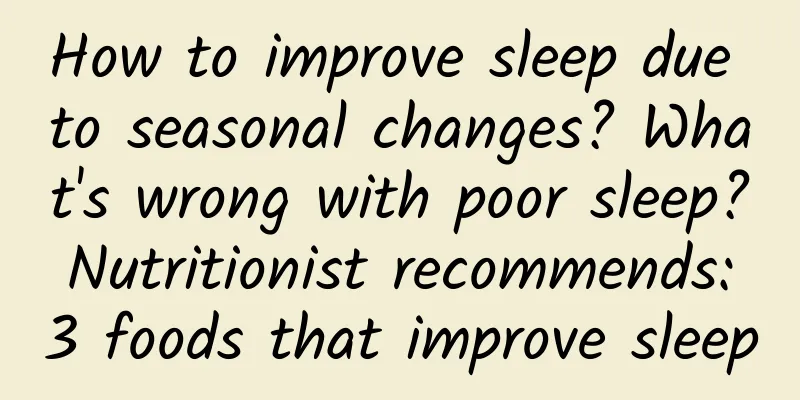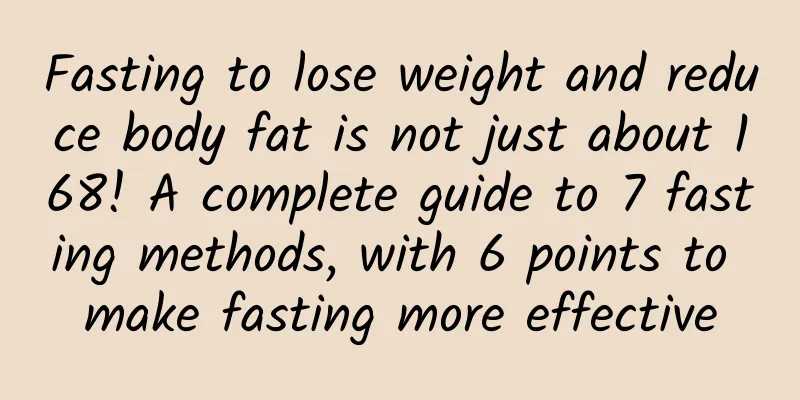Be careful about overusing your eyes! Nutritionist's eye protection formula, eat more DHA and other 8 nutrients

|
Eyes are the windows to the soul. Many people hope to have a pair of bright and clear eyes. However, excessive use of eyes, such as reading, scrolling on mobile phones, and watching TV for too long, causes problems such as excessive use of eyes, eye fatigue, and decreased vision. Therefore, in addition to avoiding prolonged use of your eyes and giving your eyes a rest regularly, you can also eat foods that are good for the eyes regularly to keep your eyes healthy! Nutritionist's Eye Care Nutrients1.DHA: An important component of the retina of the eye. It is an indispensable nutrient for maintaining eye health and helps improve visual acuity. 2. Protein: Protein is the main component of cells. The repair and renewal of tissues requires constant replenishment of protein. Severe protein deficiency will also affect the normal vision of the eyes. Protein is rich in foods such as lean meat, fish, shrimp, milk, eggs, and beans. Protein is rich in foods such as lean meat, fish, shrimp, milk, eggs, and beans. 3. Vitamin A: maintains normal visual function. The retina of the eye contains photoreceptor cells, among which columnar cells contain rhodopsin, which are responsible for receiving light stimulation and producing vision when the light is weak. Vitamin A is a component of rhodopsin. When it is deficient, it affects the regeneration of rhodopsin, and vision cannot recover quickly in weak light, which is night blindness. Sources of vitamin A are animal liver, milk and eggs, carrots and amaranth. 4. Vitamin B group: Participates in the metabolism of optic nerve cells and has the function of protecting the eyelids, conjunctiva and cornea. Whole grains such as brown rice, germ rice, whole wheat bread, as well as liver, lean meat, yeast, milk, beans, green vegetables, etc. are rich in B vitamins. 5. Vitamin C: Delays and prevents vision loss, cataracts and lens degeneration caused by aging, increases the toughness of the eye's tiny blood vessels and repairs cells, and improves eye health. 6. Vitamin E: Helps maintain the health of eye cells, blood circulation, and protect against certain eye diseases caused by aging, such as cataracts, age-related retinopathy, etc. Vitamin E is rich in vegetable oils, nuts, and wheat germ. Vitamin E is rich in vegetable oils, nuts, and wheat germ. 7. Anthocyanin: A type of flavonoid, it is related to the synthesis of rhodopsin. It can improve the eye's adaptation to darkness and light, maintain the health of the eye's capillaries, improve vision and reduce damage to the lens and retina. 8. Lutein: Protects the retina from oxidative damage, avoids age-related macular degeneration, and delays or prevents the occurrence of cataracts. This article comes from: Private words from nutritionist Juju |
Recommend
Rely on it for postpartum weight loss! Parent-child yoga helps recovery
After giving birth, many mothers have to take car...
My uterine fibroid is 9 cm, is it serious and does it require surgery?
Uterine fibroids of 9 cm are usually more serious...
Cost of treating hyperprolactinemia
Everyone has the idea of "wanting to be go...
What are the methods for treating cervical erosion?
Cervical erosion is a relatively common gynecolog...
What causes Bartholinitis?
What are the causes of Bartholinitis? Some female...
The E. coli group in Shagua Oolong Green Tea exceeds the standard by 15 times
Although the weather is starting to get cooler, m...
Can congenital absence of uterus and vagina be treated?
Can congenital absence of uterus and vagina be tr...
Treatment of menopausal dysfunctional uterine bleeding
Aunt Zhao, 46, came to Beijing to settle down wit...
Can’t eat bread to lose weight? 4 major landmines of bread with high calorie count
The sweet, dense and smooth buttermilk bread, the...
Do you need to do squats to get a perky butt? Switch to the "bridge pose" and it's easy to get started!
Squats are undoubtedly a very good way to train y...
What are the causes of irregular menstruation? Two factors that affect pregnancy
Menstruation is also called menstruation, aunt, e...
Which hospital is good for cervical erosion?
Cervical erosion is a common disease in women. If...
What are the dangers of hyperprolactinemia in the early stage?
What are the dangers of hyperprolactinemia? The s...
What are the symptoms of uterine fibroids?
What are the symptoms of uterine fibroids? Uterin...
How to do ovarian cystectomy and what to do after surgery
How is ovarian cyst removal performed? 1. Ovarian...









